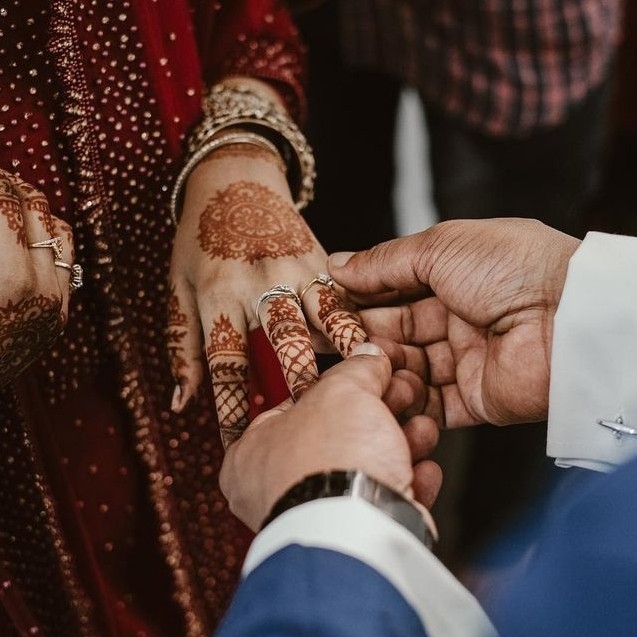A Kerala wedding, also known as a Malayali wedding, is a traditional ceremony that reflects the rich cultural heritage of the South Indian state of Kerala.
These weddings are characterized by vibrant rituals, elaborate ceremonies, and a strong emphasis on family and community involvement. Here are some key features of a Kerala wedding:
- Attire:
- Bride: The bride typically wears a traditional Kerala saree called the Kasavu saree, which is white or off-white with a golden border.
- The attire is often complemented by gold jewelry, including a distinctive necklace called the “Mulla Mottu Mala.”
- Groom: The groom commonly wears a traditional off-white or cream-colored attire known as the “Mundu” along with a silk shirt. Gold jewelry, such as a chain and bracelet, is also worn.
- Pre-Wedding Rituals:
- Nischayam: This is the formal engagement ceremony where the families of the bride and groom come together to announce and formalize the wedding.
- Wedding Invitations:
- Kerala wedding invitations are traditionally simple and elegant. The use of gold and red colors is common, and the invitations may include religious symbols and motifs.
- Wedding Venue:
- The wedding ceremony often takes place in a temple, church, or at the bride’s home. Temples and churches are common venues for the ceremony, while the reception may take place in a banquet hall or at the bride’s residence.
- Wedding Ceremony:
- Hindu Ceremony: In a Hindu Kerala wedding, the ceremony involves rituals such as the exchange of garlands (Maala Maattal), tying the sacred thread (Tali Kettu), and the groom tying the “Mangalsutra” around the bride’s neck.
- Christian Ceremony: Christian weddings in Kerala follow the Christian traditions and may include the exchange of vows, rings, and the blessing of the marriage by a priest.
- Sadhya (Feast):
- A traditional Kerala wedding feast, known as Sadhya, is a lavish spread of vegetarian dishes served on a banana leaf. It includes a variety of curries, rice, pickles, and desserts.
- Music and Dance:
- Kerala weddings are often accompanied by traditional music and dance forms such as Thiruvathira, a graceful dance performed by women.
- Elephant Procession (if affordable):
- In some affluent Kerala weddings, an elephant procession may be included, where the groom rides on a decorated elephant accompanied by traditional music and rituals.
- Post-Wedding Rituals:
- After the wedding ceremony, there are various post-wedding rituals, including the newlyweds seeking blessings from elders, exchanging gifts, and other customs depending on the community and religious background.
- Reception:
- The wedding reception is a grand event where friends and family come together to celebrate the union. It includes music, dance, and a formal introduction of the newlyweds to the community.
Kerala weddings are diverse, with variations based on the religious and cultural background of the families involved. The cultural richness and warmth of Kerala weddings make them a memorable and cherished experience.

Leave a Reply